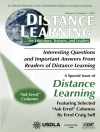The long-awaited third edition of
Doing Qualitative Research by Benjamin F. Crabtree and William L. Miller is out! Co-create your own inspired research stories with this reader-friendly text on qualitative methods, design, and analysis. Written for both students and researchers with little to no qualitative experience, as well as investigators looking to expand and refine their expertise, this clear and concise book will quickly get readers up to speed doing truly excellent qualitative research.
The first four chapters of the book set the stage by contextualizing qualitative research within the overall traditions of research, focusing on the history of qualitative research, the importance of collaboration, reflexivity, and finding the appropriate method for your research question. Each part then addresses a different stage of the research process, from data collection, data analysis and interpretation, and refocusing on the bigger picture once your research is complete. Unique chapters cover case study research, intervention studies, and participatory research. The authors use their experiences and knowledge to provide both personal and published research stories to contextualize qualitative concepts. Many of the examples demonstrate the use of qualitative methods within a mixed-methods approach. Each chapter concludes with open-ended questions to further reader contemplation and to spark discussions with classmates and colleagues.
With an abundance of clinical research examples featuring a variety of qualitative methods, Doing Qualitative Research encourages researchers to learn by doing and actively experiment with the tools and concepts presented throughout the book.
Daftar Isi
PART I: Read Me First: Overview of Qualitative Research
Chapter 1 – Clinical Research: A Qualitative Trail Map within a Mixed-Methods World
Chapter 2 – Creating Collaborative Space and Research Teams
Chapter 3 – Reflexivity
Chapter 4 – Research Design: Start with the Stories
PART II: Discovery: Data Collection Strategies
Chapter 5 – Depth Interviews
Chapter 6 – Group Interviews and Focus Groups
Chapter 7 – Observation
Chapter 8 – Key Informant Interviews
Chapter 9 – Material Artifacts
PART III: Analysis and Interpretation Strategies
Chapter 10 – The Dance of Interpretation and Frustrations of Sisyphus
Chapter 11 – Editing Organizing Style of Analysis
Chapter 12 – Template Organizing Style of Analysis
Chapter 13 – Immersion/Crystallization Organizing Style of Analysis
Chapter 14 – Computers and Data management
PART IV: Special Applications
Chapter 15 – Case Studies
Chapter 16 – Qualitative Methods in Intervention Studies
Chapter 17 – Qualitative Methods in Participatory Healthcare Research
PART V. The Rest of the Story
Chapter 18 – Doing Good Qualitative Research
Chapter 19 – Getting Funded & Getting Published
Chapter 20 – The Future of Qualitative Methods in a Mixed-Methods World
Tentang Penulis
William L. Miller, MD, MA is a family physician anthropologist and Chair Emeritus at the Lehigh Valley Health Network (LVHN), Department of Family Medicine in Allentown, Pennsylvania, and a Professor of Family Medicine at the University of South Florida Morsani School of Medicine for which LVHN serves as a branch campus. Will earned a master′s degree in medical anthropology from Wake Forest University and received his medical degree from the University of North Carolina School of Medicine. After completing his family medicine residency at Harrisburg Hospital, Will entered private practice in Bethlehem, Pennsylvania where he honed his craft for four years. Prior to joining Lehigh Valley Health Network as the first Leonard Parker Pool Endowed Chair of Family Medicine, he was on the faculty in the Department of Family Medicine at the University of Connecticut. Will has been aptly nicknamed “coyote” for his propensity for “pushing the envelope, ” not only as an organizational leader, teacher, and clinician, but also in his research focused on observing, implementing, and evaluating NIH-funded national primary care practice improvement efforts along with investigations of healing relationships and the clinical encounter, collaborative care, and professional socialization. Some of this work has focused on how primary care practices respond to new innovations in care, with one of the outcomes being the development of the relationship-centered Practice Change Model. He was founding consulting editor for the Annals of Family Medicine, served a co-editor on two books, Doing Qualitative Research and Exploring Collaborative Research in Primary Care, and received, along with Ben Crabtree, the 2014 Curtis G. Hames Research Award for lifetime achievement in family medicine scholarship. He was an advisor and evaluator for the American Academy of Family Physicians’ Future of Family Medicine National Demonstration Project of the patient-centered medical home and the American Board of Family Medicine-funded national family medicine residency redesign initiative. His special joys are family, getting lost in the woods with his grandson, cross-country skiing, and music.












